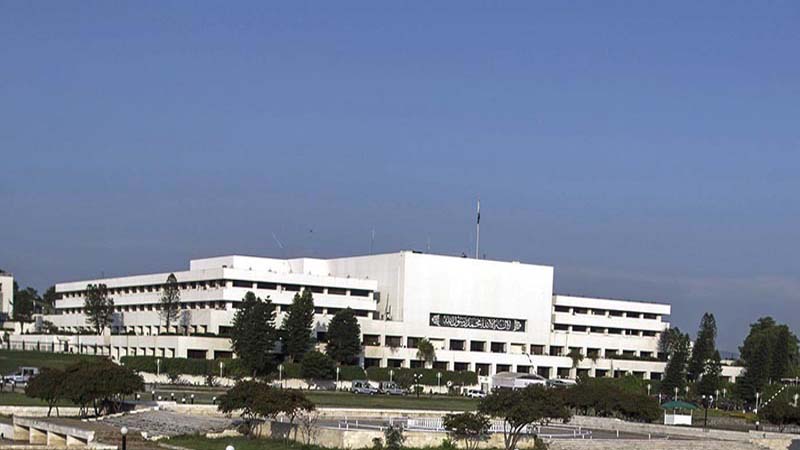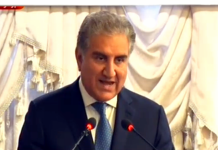
The bill was moved in the House by Adviser to the Prime Minister on Parliamentary Affairs Dr Babar Awan after presentation of the report of Standing Committee on Law and Justice on the legislative proposal.
The bill was introduced in the House on Wednesday after its approval from the National Assembly and referred to the committee for deliberation. The committee met on Thursday before the session and proposed amendments in it. According to Committee Chairman Javed Abbassi, Minister for Law and Justice Farogh Naseem also supported the amendments proposed by the opposition.
The Anti-Terrorism (Amendment) Bill, 2020 (Amendment in sections 2, 11O and insertion of section 11OOO of the Anti-Terrorism Act, 1997) aims to fulfil the obligation of the Financial Action Task Force (FATF) to exclude Pakistan’s name from the grey list. It defines ‘Person’ in section 2 as an additional clauses named (pa) which provides detailed definition of individuals.
As per the Federal Legislative List provided in the Fourth Schedule of the Constitution of Islamic Republic of Pakistan 1973, the federal government for compliance with international treaties, conventions and agreements and international arbitration can make legislations and rules to enforce such decisions.
The bill provides that any refusal or non-compliance with the orders of the federal government under section 2 of the United Nations (Security Council) Act, 1948 is a punishable offence under Section 1100 – Violation of the UN Security Council Resolutions of this act.
The House also passed another bill – the United Nations (Security Council) (Amendment) Bill, 2020 – after presentation of the report of Standing Committee on Law and Justice. The bill aims at ensuring effective implementation on the resolutions of the UN Security Council. According to statements of objects and reasons of the bill, the implementation of the obligations of the resolutions adopted by the UNSC under Chapter VII of the United Nations Charter are fulfilled through the United Nations (Security Council) Act, 1948 (XIV of 1948). Under the said Act, the Federal Government passes orders, directing authorities in Pakistan to implement various measures in the Security Council resolutions, including the freezing and seizure of assets, travel ban and arms embargo.
The Act does not contain an indemnity clause to provide protection to the persons implementing in good faith the orders passed under the Act. Furthermore, there is a requirement to give powers to the federal government to make rules for carrying out the purposes of the bill. In addition, the power to issue orders under the bill needs to be delegated by the federal government to ensure that the orders are issued in a timely manner, within a matter of a few hours, as required by the Security Council.
Finally the provision for punishment of persons offending against the order issued under the Act is redundant as neither the punishment nor the mechanism for its enforcement is provided under the Act. The issue is being taken up separately through corresponding amendment in the Anti-Terrorism Act, 1997. The bill, therefore, seeks to amend the United Nations (Security Council) Act, 1948 (XIV of 1948) in order to ensure the effective implementation of the resolutions of the United Nations Security Council.
Minister for Foreign Affairs Shah Mahmood Qureshi Thursday said Pakistan had carried out the legislation to move itself from the grey to white list of the Financial Action Task Force (FATF).
Speaking in the Senate, he said, “Pakistan has completed all the phases of the process and now there is no reason to keep it in the grey list.” He said the parliament had amended the Anti-Terrorism Act and the United Nations Security Council Act and now the Asia Pacific Group would analyse the report to be sent by Pakistan. Then the report would be considered in the plenary of FATF in October, which would decide to put Pakistan in the white list or vice versa, he said. There were no reasons now to keep Pakistan in the grey list, he viewed. The minister thanked the opposition parties, including Pakistan Muslim League-Nawaz, Pakistan People’s Party and Jamaat-e-Islami for supporting the government in the passage of two bills related to the FATF.












